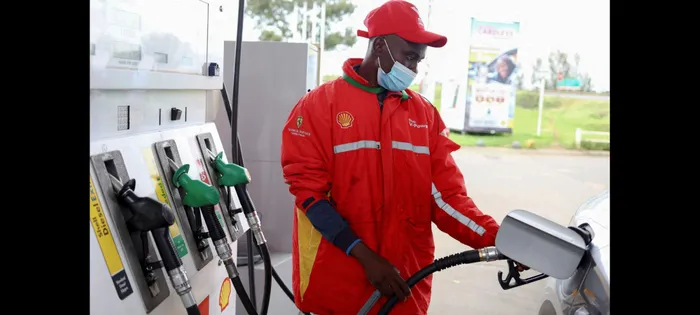First fuel price hike in six months on the cards

Diesel is expected to increase by between 14 cents and 13 cents/litre while illuminating paraffin will increase by around seven cents a litre.
The Automobile Association and economists expect the petrol price to increase slightly for the first time in six months in November.
The predicted price hike is attributed to a weaker Rand and higher Brent crude oil prices due to the conflict in the Middle East.
Layton Beard, spokesperson for the Automobile Association, said that the five-month trend of fuel decreases was set to end in November according to unaudited mid-month data from the Central Energy Fund (CEF).
“According to the CEF’s figures, ULP95 is expected to be slightly higher by around 14 cents a litre, while ULP93 is set for an increase of around three cents/litre. Diesel is expected to increase by between 14 cents and 13 cents/litre while illuminating paraffin will increase by around seven cents a litre.”
Beard added that the increase is a result of higher international product prices and a steady softening of the Rand against the US Dollar.
“There has been a sharp rise in international product prices from the beginning of October due to the tensions which are ramping up in the Middle East.
“The local currency could be under significant pressure going into the last two weeks of October, and this could have a more significant impact on local fuel prices in November. At this stage, it is important to keep an eye on that indicator as we head into the new month.”
Beard said that lower stable fuel prices play a crucial role in the decrease of inflation and in lowering the prices of goods and services.
“It would greatly benefit our economy if the fuel price decrease trajectory continued for longer, but the expected increase, though marginal at this stage, comes at a time when most consumers and motorists are still struggling financially, and any increase now will add pressure on them.”
Waldo Krugell, an economics professor at North-West University, said the two key drivers of the fuel price, the oil price and the rand-dollar exchange rate, point to a petrol and diesel price increase in November.
“The so-called under-recovery at the current price is small, and a lot can still happen to the oil price and the exchange rate.
“At current levels, the prediction is for a 14c per litre increase for 95 octane petrol and 0.05% diesel.”
Krugell added that what happens in the next two weeks will depend on the conflict in the Middle East.
“The oil price has eased after the attacks and retaliations that pushed up the price earlier this month. The exchange rate will be influenced by Chinese Q3 economic growth data out later this week. The Finance Minister Enoch Godongwana’s Medium Term Budget Policy Statement (MTBPS) on 30 October will also have an influence.”
Old Mutual Group chief economist, Johann Els, said that the petrol price is currently under recovered because of the weaker rand and higher oil prices.
“Brent Crude oil is up from 71 dollars to 76 dollars a barrel, and the Rand is weaker from R17.20 to about R17.50, so there is a large under-recovery. The current data increase is around 13 cents a litre. If it had to continue, we could possibly be looking at an increase of R1 at the beginning of November.”
Els added that it was hoped that the Rand would strengthen and the Middle East conflict is contained, as that could change the outlook. “I wouldn’t be too concerned about the increase.
“We have had five consecutive decreases, and one increase won’t have a huge impact on inflation.”
Economist Dawie Roodt said that he expected a small increase in the petrol price in November.
“I think it could be 10 cents a litre. I feel the impact of the higher price of Brent Crude oil has not had as big an impact as we thought, so the increase will be minimal.
“However, we have to wait and see how things go in the last two weeks of October.”
The Mercury
Related Topics: